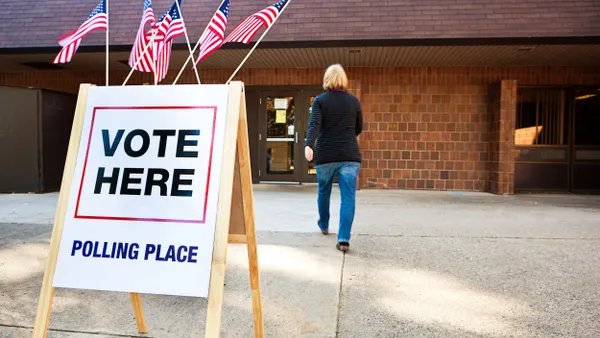Dive Brief:
- A federal appeals court ruled that homeless people cannot be prosecuted for sleeping on city streets and other public areas if they have nowhere else to go, the Associated Press reports. The court ruled that banning people experiencing homelessness from sitting, lying or sleeping on public property when no homeless shelters are available constitutes cruel and unusual punishment.
- The court ruled in favor of six homeless people from Boise, ID who sued the city in 2009 after receiving citations in accordance with the city law banning people from using streets and sidewalks as a so-called "camping place."
- Unless it is appealed, the 9th Circuit Court's decision applies to similar city laws in all states under the court's jurisdiction: Alaska, Arizona, California, Hawaii, Idaho, Montana, Nevada, Oregon and Washington, as well as the U.S. territories of Guam and the Northern Mariana Islands.
Dive Insight:
When the case first was filed, Boise was said to have only about 700 beds in its homeless shelter yet an estimated 4,500 people experiencing homelessness. However, in 2014 police reportedly stopped issuing citations for people sleeping on the street when no space was available in homeless shelters. But furthering the problem were limitations on how many days people could stay in a shelter, meaning people could be rejected from the shelter even if it was not full, and therefore could receive a citation for sleeping in public areas.
Boise has been caught up in legal battles on the issue ever since the original lawsuit was filed in 2009. The city hasn't said how it will move forward, but it could still decide to take further action in an attempt to preserve its law, or at least portions of it.
This ruling has widespread implications for cities with prohibitive laws for people experiencing homelessness. It will apply to cities in nine different states and has the potential to set a precedent for other regional court decisions.
Cities along the West Coast could be faced with how to revamp their regulations at a time when homelessness in that region is spiking. While more cities are taking innovative, holistic approaches to tackling the problem — technology and tiny houses among them — some still have a capacity problem. Cities' need to address homelessness, especially on the West Coast, only will grow in the coming months not just because of this court decision, but also because housing affordability crises continue to worsen.











